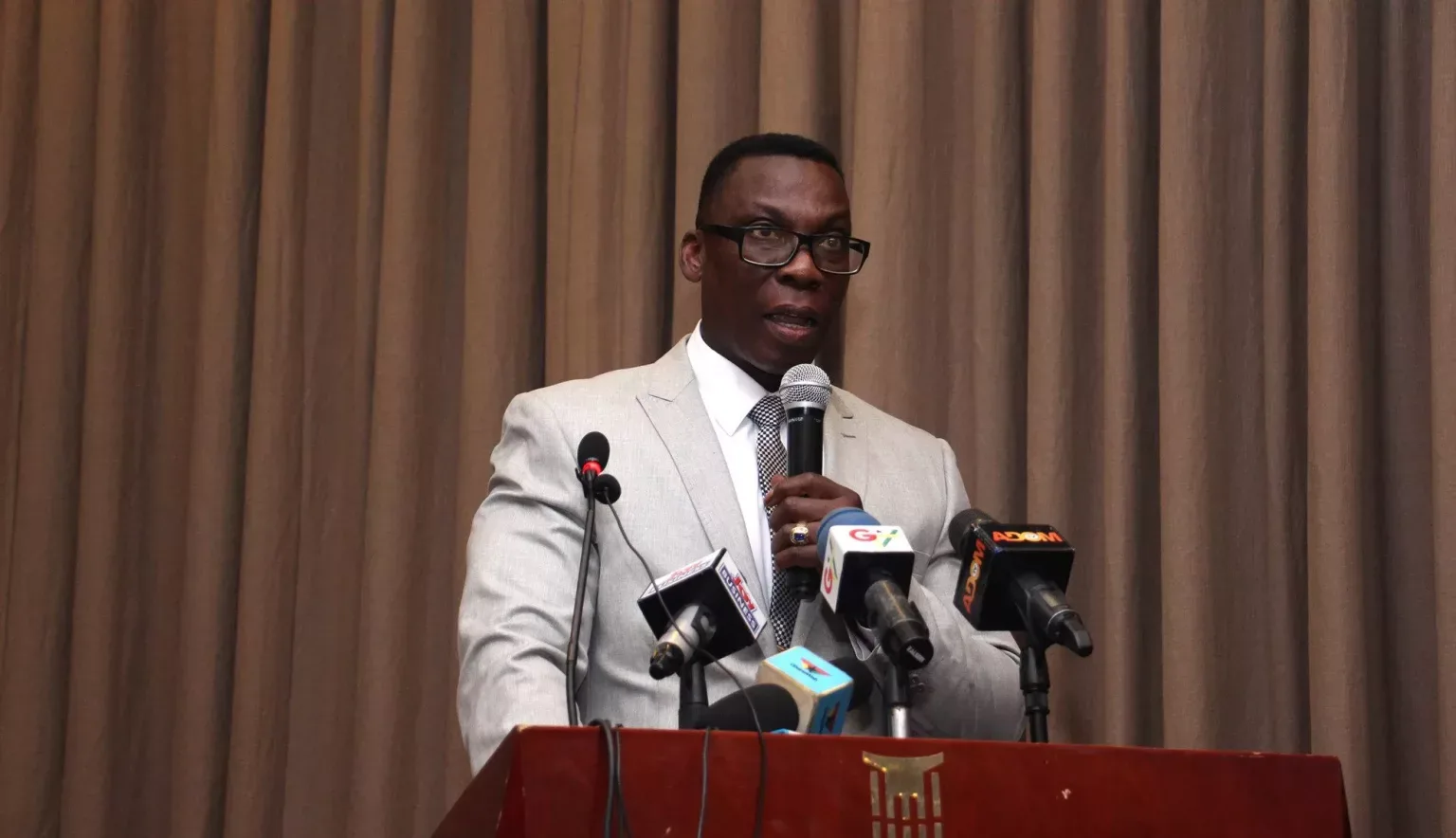The National Insurance Commission of Ghana (NIC) is changing the negative perceptions around indemnity, ensuring providers are delivering meaningfully reliable services to policyholders and helping to develop a sense of trust as the underlying mission of every insurance entity in claims payment.
INSPIRING INSURANCE CONFIDENCE
“The Ghanaian insurance landscape has become more exciting as there is a new wind of change regarding our approach to the regulation, supervision and general operational standards of industry players.
“We are making insurance a matter of importance to people rather than a matter of compulsion, and have gathered adequate momentum in our exponential drive to achieving an improved insurance penetration rate.
We are poised to stop at nothing with the resolve to ensuring that we make greater inroads within the insurance space.”
It’s been 18 months since I last spoke with Justice Ofori, Commissioner of Insurance at Ghana’s insurance regulatory body, and it’s refreshing to say a lot has changed for the better over the period.
The country’s insurance industry has experienced what can only be described as a drastic transformation, Ofori hinting to recent strides and achievements chalked up by the Commission in collaboration with other key stakeholders.
“We have created and continue to improve on an environment where insurance companies no longer compete on pricing but on the quality of their services, which is remarkable,” he states. “We’ve been promoting a sound system, thus shaping the needed element of insurance – trust!”
Trust is everything when it comes to the financial services sector; it has to be earned and nurtured and, having recognised this, the National Insurance Commission of Ghana (NIC) is tirelessly pursuing an endless list of impactful initiatives that are helping to both improve industry performance and change public perceptions about insurance.
First, it recently announced a new, more flexible minimum capital requirement for all insurance companies – a move that has allowed industry players to improve their focus on and at the same time prioritise policyholders’ interests.
“We’ve done this by providing an adequate period within which regulated entities are expected to meet the minimum requirements with less stress,” Ofori states. “It is instructive to note that there seem to be quite a number of insurance companies who are unable to live up to expectations by way of efficiency and effectiveness, and this has been dealt with, instilling the much needed confidence in insurance.”
TAKING STRIDES
What is also worthy of note is that the minimum capital requirement strategic announcement is just one of 10 transformational endeavours on NIC’s agenda.
The Motor Insurance Database (MID) is a second such initiative. Designed to substantially improve the national understanding of Ghana’s motor insurance market, it has greatly helped all stakeholders to better analyse policies and authenticities with the view to minimising fraud, particularly motoring insurance which forms over 40 percent of the portfolio of non-life underwriting companies.
“The introduction of MID in January 2020 was a huge leap for most non-life insurance companies and intermediaries,” the Commissioner comments.
“Though it’s still in its early days yet, the interim statistics have shown a significant reduction in premium rate undercutting as well as minimising the menace of fake insurance,” the Commissioner he adds, striking a positive note about the future.
The development of a supervision manual for anti-money laundering, the deliverance of risk-based supervision legislation and implementation of the International Public Sector Accounting Standards (IPSAS), with the NIC having been one of the few state agencies to have implemented this globally ahead of the set deadline, are all additional ways in which the organisation has been improving international best practices worth emulating by other state agencies.
Further, the NIC has targeted the training of 10,000 insurance sales agents, having already trained over 2,000 as of December 2019.
The Commission, through the Ghana Insurance College, is also upskilling the existing insurance sales agents in ethics and sound standard practices so that they will be credible ambassadors as opposed to the hitherto propagators of mis-selling that can occur.
It is instructive to note that this is helping to grow the industry as well as revamping its reputation.
Ofori explains: “We’re working assiduously on the new insurance bill to help the growth of the industry, bridge the gap in legislation and bolster international best practices in the Ghanaian insurance market.
These include compulsory group life insurance, workmen’s compensation, professional indemnity, marine, commercial buildings and public liability insurances, among others.
“The Agricultural Insurance Policy has also been drafted and submitted to the government for consideration with the aid of the Alliance for Green Revolution in Africa (AGRA).
This bill will provide a comprehensive regulatory framework on which a more structured regime will be hinged.”
A SHIFTING MINDSET
The outcome of all these efforts and others has been a rise in awareness, and with that awareness has come significant progress.
Ofori himself points to the life sector as one that picked up markedly, revealing that the informal sector, which accounts for over 80 percent of Ghana’s working population, is one that has particularly come to value the real benefits of insurance in general.
“Professionals in the informal sector, like market traders and artisans, have benefitted from the support of the German Development Corporation (GIZ) through micro and small-scale business clinics, which has engendered trust through the simplicity of language,” Ofori affirms. “When there is awareness, needs are created, and as needs are created, actions of patronage fall in line thus culminating in the growth of the sector.”
The digitalisation of insurance has also been wholly embraced by the local population, MID standing as a prime such example, and early movers in the market have made significant gains, generating an exponential increase in gross premiums in the first two months after implementation.
“The MID has become more user-friendly as every motorist, driver, passenger or pedestrian with any type of mobile phone has the ability to check the authenticity of any vehicle,” Ofori adds.
Crucial to the success of each of these initiatives have been those organisations working in harmony with the NIC towards a common goal.
It has cultivated close relationships with the Driver and Vehicle Licensing Authority (DVLA), the Ghana National Fire Service (GNFS) and the Motor Traffic and Transport Department (MTTD) of the Ghana Police Service, each of these organisations helping to uphold the NIC’s mission of increasing public confidence in insurance in diverse ways.
Indeed, in the eyes of the Commissioner, these collaborations and others are not just crucial but also formidable pillars on which a solid insurance industry can be built.
More from Africa Outlook
“The NIC is also partnering with the Ghana Education Service (GES) in order to provide basic insurance education in second cycle institutions with a youth-focussed approach, the launch of which took place in January 2020,” he adds.
“Our relationships with donor agencies such as GIZ and AGRA similarly continue to yield the needed results.”
“We have created and continue to improve on an environment where insurance companies no longer compete on pricing but on the quality of their services, which is remarkable”
Justice Ofori, Commissioner of Insurance, National Insurance Commission of Ghana
PURPOSED TO PROTECT
Without question, the work of NIC in partnership with each of these entities has begun to turn the tide on poor practices in Ghanaian insurance and also create awareness in the remotest parts of the country using empirical research results.
Regulated entities no longer have any choice but to fine tune their operations and ultimately deliver meaningful services to policyholders, thus developing the long-needed sense of trust and rising demand in the process.
The Training of Trainers (ToT) seminars for Officers of the Police MTTD have commenced in earnest to ensure a successful enforcement of the MID in all 16 Regions of the Nation.
And the NIC itself has never been in a better position to make greater progress, as its footprint now spans seven geographical regions owing to a recent decentralisation policy of its supervision and regulatory mandates, resulting in the establishment of three additional offices in Koforidua, Cape Coast and the Sunyani areas, bringing the number outside Accra to seven.
“We’re no longer operating on a basis of ‘long-talk’ from Accra anymore,” Ofori states. “These offices are a fully-fledged part of NIC’s functions and deliver on supervision, regulation and take complaints and compensation issues very seriously as we draw closer to policyholders and prospective ones.”
Likewise, it has also established a research Unit in order to better assess industry performance, undertaking various empirical and market research programmes with the view to further increasing the overall penetration rate.
Indeed, this is the organisation’s ultimate ambition moving forward. In the next year, it hopes to have created a 70 percent digitised national insurance system with marine cargo and hull insurance digitisation in the offing, awareness rates nearing 90 percent, and a more financially agile industry that will enhance confidence in insurance among members of the general public.
Why? Well, for Ofori, it comes down to the simple fact that insurance is the best way to protect finances, lives and businesses.
“The poor need insurance to protect the little they have and continue living as comfortably as possible, as do the rich,” he affirms. “It is risky to deceive ourselves into thinking that insurance premiums are high, rather than being motivated by the relief that will be there in the event of mishaps.
“If one perceives insurance as being expensive, then we should begin to think of the fact that there is a reason we leave our house doors locked before going to sleep, even if we’ve never experienced a break-in before.
“The global COVID-19 pandemic is the perfect example of why insurance is important. It’s crucial that we take the necessary safety precautions, washing our hands and using alcohol-based sanitisers to curb its spread, but for those affected by it and falling upon poor health or hardships, insurance can be there to help pick up the pieces.”
































